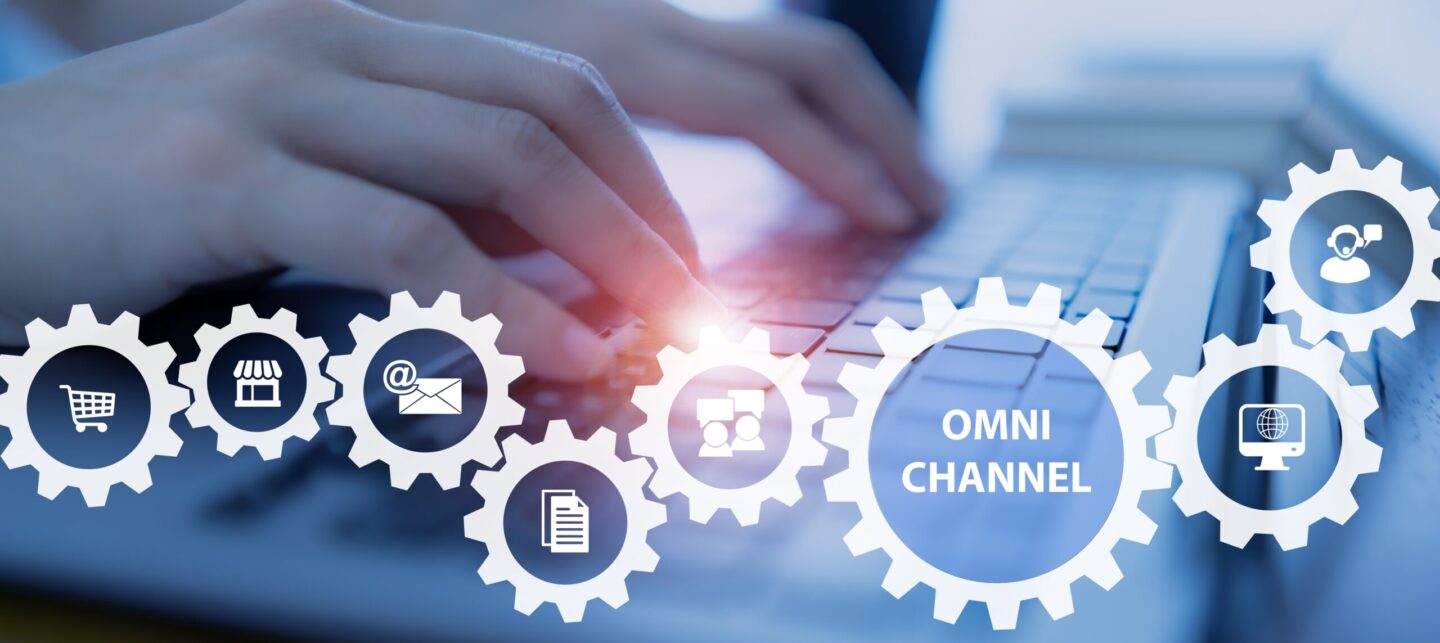Omnichannel marketing is a crucial strategy that can help businesses thrive as consumers increasingly expect seamless experiences across all platforms like online, mobile, and in-person, making it essential for brands to integrate their marketing efforts across all channels to deliver a consistent customer journey.
In the B2B space, Omnichannel marketing has evolved significantly over the past decade, and 2025 is shaping up to be the most dynamic year yet for businesses aiming to create seamless customer experiences. With the increasing integration of AI, personalization, and data-driven decision-making, B2B marketers must rethink their strategies to stay competitive in the omnichannel space.
What is B2B Omnichannel Marketing?
Omnichannel marketing is a strategy that integrates multiple channels – both online and offline – to provide cohesive customer experiences. Unlike multichannel marketing, where channels operate independently, omnichannel marketing ensures that B2B customers receive consistent, personalized experiences whether they interact with a brand via LinkedIn, a company website, an industry event, or an enterprise sales platform
Top 5 Trends in B2B Omnichannel Marketing
AI-Driven Personalization
Artificial intelligence is revolutionizing B2b omnichannel marketing by enabling hyper-personalization. Businesses can analyze vast amounts of customer data in real-time to offer personalized product recommendations, tailored content, and predictive customer service. AI chatbots and virtual assistants will become even more sophisticated, providing human-like interactions across all channels.
Seamless Integration of Digital and In-Person Sales Channels
B2B buyers often interact with brands across multiple touchpoints before making a purchase decision. In 2025, businesses will leverage technologies like AI-driven account-based marketing (ABM), digital showrooms, and virtual reality (VR) experiences to bridge the gap between online research and in-person sales meetings. Hybrid events will also play a crucial role in enhancing engagement.
Voice and Conversational Commerce
Voice search and conversational AI are becoming more prominent in B2B purchasing, with business buyers using AI-driven platforms to conduct research, request quotes, and complete transactions. Brands must optimize their omnichannel strategies to support voice-based inquiries and AI-powered chat interfaces to drive lead nurturing, engagement, and qualification.
Social Selling and LinkedIn Commerce
Social media platforms, particularly LinkedIn, are evolving into key sales channels for B2B businesses. More companies will leverage LinkedIn’s advertising tools, content marketing, and AI-driven networking features to generate leads and close deals. B2B businesses that embrace social selling will benefit from seamless engagement with decision-makers and streamlined purchasing processes.
Hyper-Personalized Advertising Across Channels
B2B buyers expect brands to provide relevant, high-value content tailored to their business needs. Hyper-personalized marketing campaigns, powered by AI and machine learning, will enable businesses to deliver targeted content through email, social media, programmatic advertising, and connected TV ads.
How Do I Build a Successful Omnichannel Strategy?
- Invest in Technology: Implement AI, automation, and CDPs to streamline data collection and customer engagement.
- Optimize for Mobile and Voice: Ensure that websites, platforms, and content are mobile-friendly and voice-search compatible.
- Leverage First-Party Data: Use customer insights from owned platforms rather than relying on third-party cookies.
- Personalize the Customer Journey: Offer dynamic content, tailored recommendations, and interactive experiences for business buyers.
- Monitor and Adapt: Continuously analyze customer behavior and optimize strategies based on real-time insights.
Conclusion
Omnichannel marketing in the B2B space is about creating frictionless, highly personalized customer experiences across all digital and physical touchpoints. Businesses that embrace AI, data-driven decision-making, and emerging technologies will stay ahead of the competition. As B2B buyer expectations continue to evolve, staying agile and customer-focused will be the key to success in the omnichannel era.

